Hyundai i10 vs SsangYong Tivoli – Differences & prices compared
Both models have their strengths – but which one suits you more?
Compare performance, efficiency, price and space directly: Hyundai i10 or SsangYong Tivoli?
Costs and Efficiency:
Looking at overall running costs, both models reveal some interesting differences in everyday economy.
Hyundai i10 has a convincingly advantage in terms of price – it starts at 14600 £, while the SsangYong Tivoli costs 21400 £. That’s a price difference of around 6858 £.
Fuel consumption also shows a difference: Hyundai i10 manages with 4.90 L and is therefore significantly more efficient than the SsangYong Tivoli with 7 L. The difference is about 2.10 L per 100 km.
Engine and Performance:
Power, torque and acceleration say a lot about how a car feels on the road. This is where you see which model delivers more driving dynamics.
When it comes to engine power, the SsangYong Tivoli has a clearly edge – offering 163 HP compared to 90 HP. That’s roughly 73 HP more horsepower.
In terms of top speed, the SsangYong Tivoli performs minimal better – reaching 181 km/h, while the Hyundai i10 tops out at 175 km/h. The difference is around 6 km/h.
There’s also a difference in torque: SsangYong Tivoli pulls evident stronger with 280 Nm compared to 172 Nm. That’s about 108 Nm difference.
Space and Everyday Use:
Beyond pure performance, interior space and usability matter most in daily life. This is where you see which car is more practical and versatile.
Both vehicles offer seating for 5 people.
In curb weight, Hyundai i10 is distinct lighter – 996 kg compared to 1375 kg. The difference is around 379 kg.
In terms of boot space, the SsangYong Tivoli offers decisively more room – 720 L compared to 252 L. That’s a difference of about 468 L.
In maximum load capacity, the SsangYong Tivoli performs evident better – up to 1440 L, which is about 390 L more than the Hyundai i10.
When it comes to payload, SsangYong Tivoli barely noticeable takes the win – 455 kg compared to 423 kg. That’s a difference of about 32 kg.
Who comes out on top?
Overall, the SsangYong Tivoli shows itself to be dominates this comparison and secures the title of DriveDuel Champion.
It convinces with the more balanced overall package and proves to be the more versatile choice for everyday use.
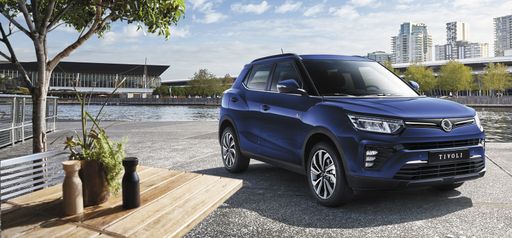 @ SsangYong Motor / KG Mobility
@ SsangYong Motor / KG Mobility
SsangYong Tivoli
Hyundai i10
The Hyundai i10 is a cheeky city car that squeezes big-car confidence into a pocket-friendly package, carving through tight streets with surprising composure and sensible practicality. For buyers after low fuss, sensible equipment and wallet-friendly running costs, it's a smart, no-nonsense pick that makes sense whether you're a first-time driver or need a reliable second car.
details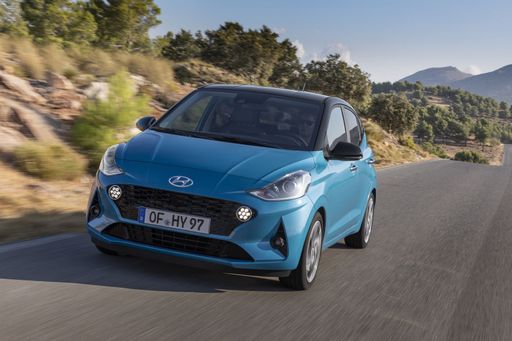 @ Hyundai Motor Company
@ Hyundai Motor Company
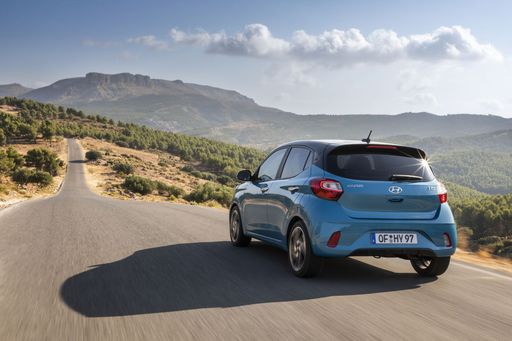 @ Hyundai Motor Company
@ Hyundai Motor Company
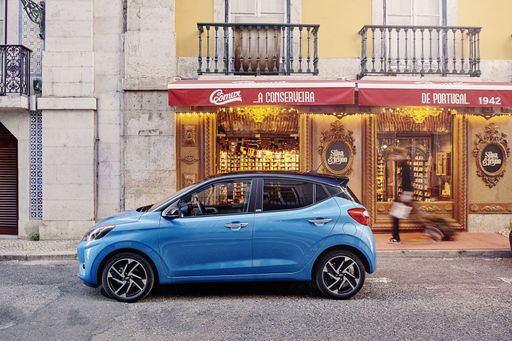 @ Hyundai Motor Company
@ Hyundai Motor Company
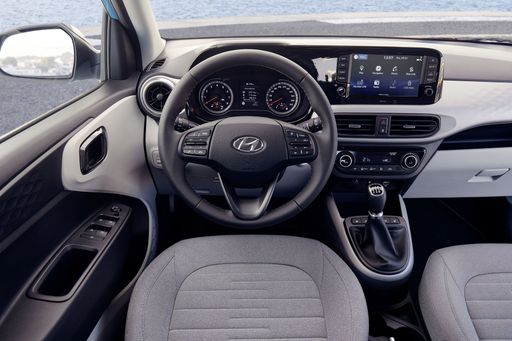 @ Hyundai Motor Company
@ Hyundai Motor Company
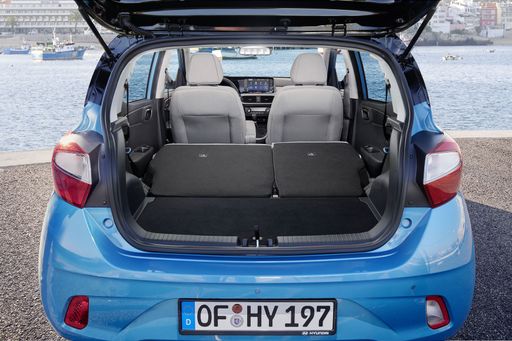 @ Hyundai Motor Company
@ Hyundai Motor Company
SsangYong Tivoli
The SsangYong Tivoli is a compact SUV that seamlessly blends style with practicality, making it an appealing choice for urban drivers. Its sleek design is complemented by a well-crafted interior, offering a comfortable and spacious experience for passengers. With its reliable performance and modern features, the Tivoli stands out as a versatile option in the competitive compact SUV market.
details @ SsangYong Motor / KG Mobility
@ SsangYong Motor / KG Mobility
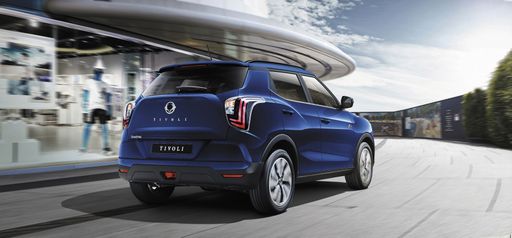 @ SsangYong Motor / KG Mobility
@ SsangYong Motor / KG Mobility
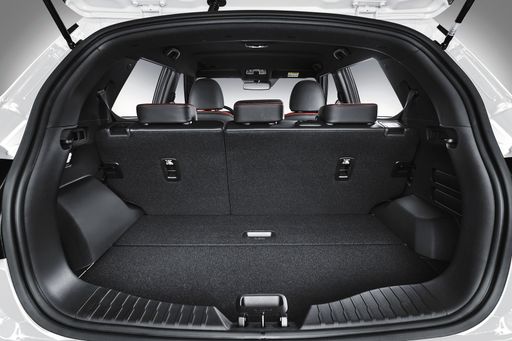 @ SsangYong Motor / KG Mobility
@ SsangYong Motor / KG Mobility
 @ Hyundai Motor Company
@ Hyundai Motor Company
|
 @ SsangYong Motor / KG Mobility
@ SsangYong Motor / KG Mobility
|
|
|
|
Costs and Consumption |
|
|---|---|
|
Price
14600 - 19000 £
|
Price
21400 - 30300 £
|
|
Consumption L/100km
4.9 - 5.5 L
|
Consumption L/100km
7 - 8.3 L
|
|
Consumption kWh/100km
-
|
Consumption kWh/100km
-
|
|
Electric Range
-
|
Electric Range
-
|
|
Battery Capacity
-
|
Battery Capacity
-
|
|
co2
110 - 124 g/km
|
co2
161 - 191 g/km
|
|
Fuel tank capacity
36 L
|
Fuel tank capacity
50 L
|
Dimensions and Body |
|
|---|---|
|
Body Type
Hatchback
|
Body Type
SUV
|
|
Seats
4 - 5
|
Seats
5
|
|
Doors
5
|
Doors
5
|
|
Curb weight
996 - 1099 kg
|
Curb weight
1375 - 1492 kg
|
|
Trunk capacity
252 L
|
Trunk capacity
395 - 720 L
|
|
Length
3670 - 3675 mm
|
Length
4225 - 4480 mm
|
|
Width
1680 mm
|
Width
1810 mm
|
|
Height
1480 - 1483 mm
|
Height
1613 - 1646 mm
|
|
Max trunk capacity
1050 L
|
Max trunk capacity
1115 - 1440 L
|
|
Payload
344 - 423 kg
|
Payload
425 - 455 kg
|
Engine and Performance |
|
|---|---|
|
Engine Type
Petrol
|
Engine Type
Petrol
|
|
Transmission
Manuel, Automatic
|
Transmission
Manuel, Automatic
|
|
Transmission Detail
Manual Gearbox, Automated Manual
|
Transmission Detail
Manual Gearbox, Automatic Gearbox
|
|
Drive Type
Front-Wheel Drive
|
Drive Type
Front-Wheel Drive, All-Wheel Drive
|
|
Power HP
63 - 90 HP
|
Power HP
163 HP
|
|
Acceleration 0-100km/h
11.4 - 18.4 s
|
Acceleration 0-100km/h
-
|
|
Max Speed
143 - 175 km/h
|
Max Speed
175 - 181 km/h
|
|
Torque
93 - 172 Nm
|
Torque
260 - 280 Nm
|
|
Number of Cylinders
3 - 4
|
Number of Cylinders
4
|
|
Power kW
46 - 66 kW
|
Power kW
120 kW
|
|
Engine capacity
998 - 1197 cm3
|
Engine capacity
1497 cm3
|
General |
|
|---|---|
|
Model Year
2024
|
Model Year
2021 - 2024
|
|
CO2 Efficiency Class
C, D
|
CO2 Efficiency Class
F, G
|
|
Brand
Hyundai
|
Brand
SsangYong
|
Is the Hyundai i10 offered with different drivetrains?
The Hyundai i10 is offered with Front-Wheel Drive.
The prices and data displayed are estimates based on German list prices and may vary by country. This information is not legally binding.
